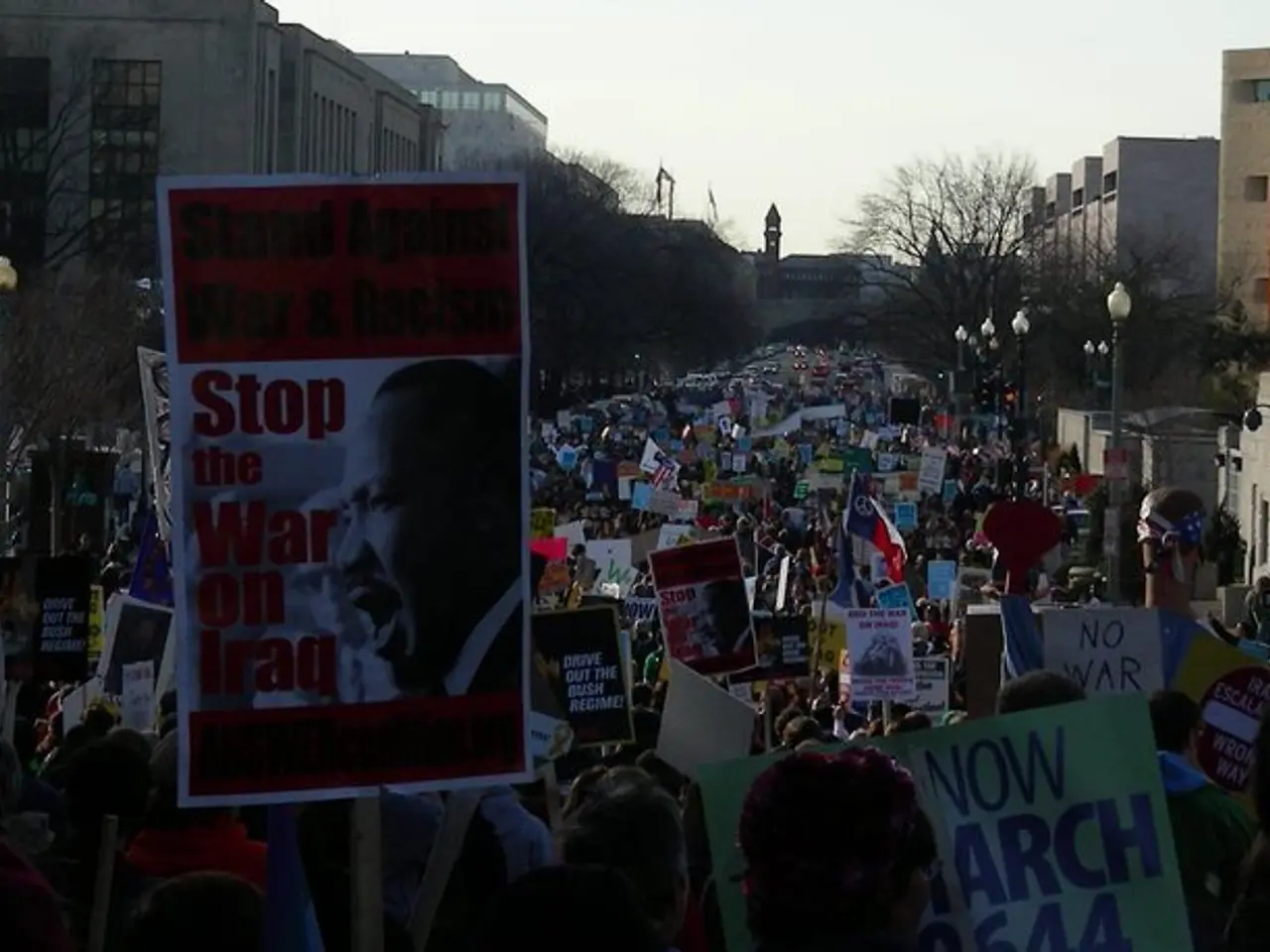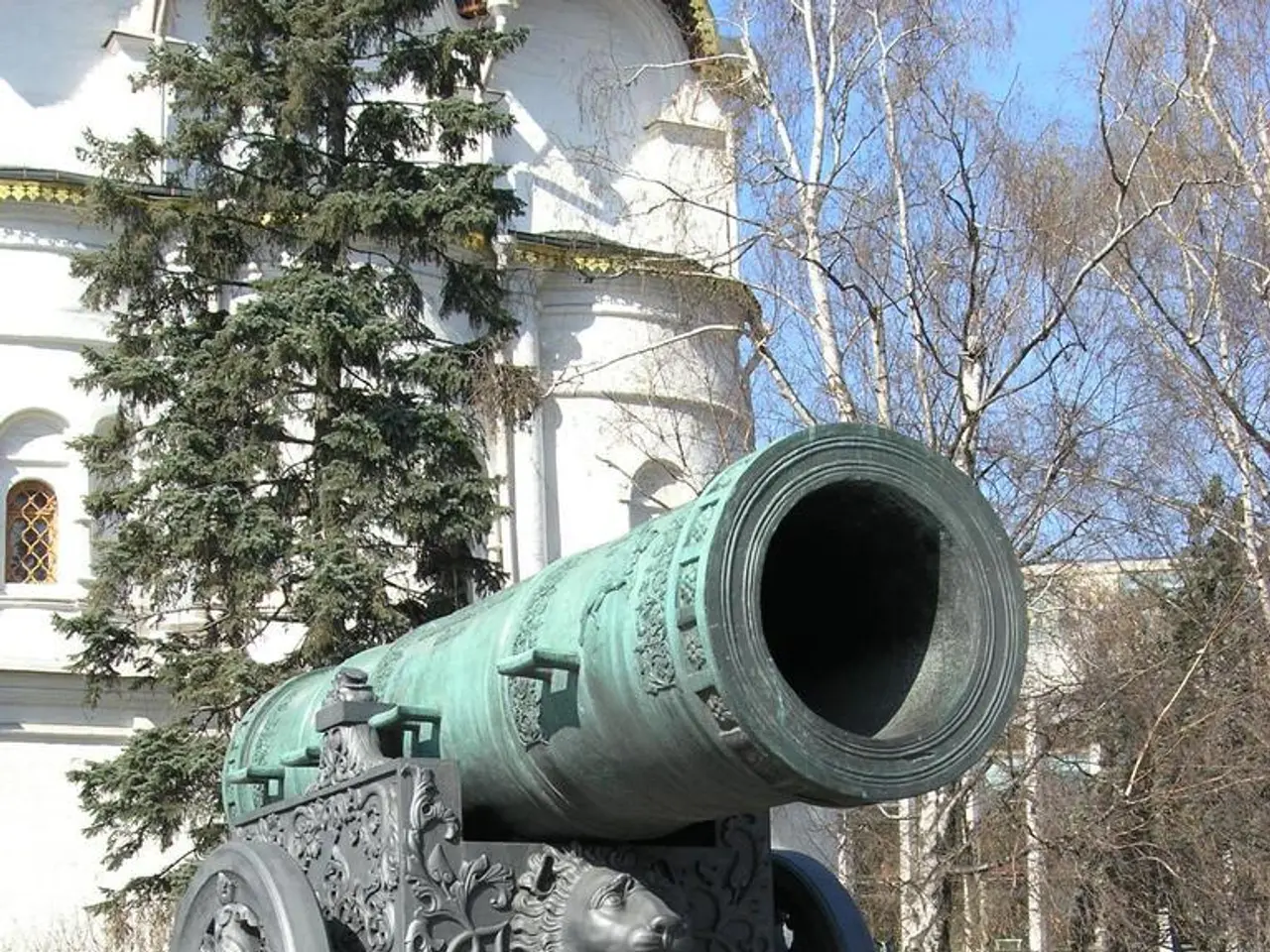Tale of Two Nations: Israel and Iran's Intense Standoff
European officials engage in talks with Iran over its nuclear development program.
In the tense, volatile landscape of Geneva, Tel Aviv, and Tehran, high-ranking foreign ministers from Europe, America, and Iran convene, their main objective - to defuse the current war between Israel and Iran. The war, now entering its second week, has put these key players at a precipice, hoping to persuade Iran to renounce its nuclear program and forego any potential acquisition of nuclear weapons.
European Union's diplomatic powerhouse, Kaja Kallas, is set to join the conversation with Iranian Foreign Minister Abbas Araghtschi in Geneva, aiming to infuse diplomatic momentum into the situation. The uncertainty surrounding the US's involvement in the war looms large, adding layers of complexity to the negotiations.
The Trump Dilemma: Two Weeks Till War Decision
President Trump has left a two-week countdown on whether the US, Israel's primary ally, will actively join the fray against Iran. Trump's spokesperson, Karoline Leavitt, claims the heightened chances of near-future negotiations with Iran serve as the backdrop for this decision.
While the confrontation between Israel and Iran persists, Israel's air force has allegedly targeted numerous facilities overnight, including military production centers for rockets near Tehran and a research institute believed to be associated with Iran's nuclear weapons project. These claims are yet to be substantiated independently. Simultaneously, Iran launched four drones towards Israel, which were successfully intercepted, according to the army's Telegram channel. A fresh wave of rocket attacks from Iran caused injuries to five people in Beersheva, with substantial property damage to nearby residential buildings.
The US military provides support to Israel's defense, but thus far, has not engaged in attacks on Iran directly, as Washington makes clear. Trump's spokesperson reinforced the US's preference for diplomatic means, declaring a readiness to show force if needed, emphasizing the US military's unparalleled strength.
US and UK - Diplomatic Allies United
Before the European meeting with Iran in Switzerland, UK Foreign Minister David Lammy conducted talks in Washington with US counterpart Marco Rubio. Both ministers agreed on a unanimous stance: Iran must never acquire nuclear weapons. A phone call between Rubio and French Foreign Minister Jean-Noël Barrot followed, both sides vowing to maintain close cooperation to ensure Iran never develops or acquires nuclear weapons.
Israel, with its nuclear capabilities, has pledged to prevent Iran from developing nuclear weapons and to neutralize its rocket arsenal. Iran, however, persists in denying any nuclear weapon ambitions and insists on the right to use nuclear power for peaceful purposes. Israeli Prime Minister Benjamin Netanyahu remains resolute.
Netanyahu responded to Israeli TV channel Kan that Israel could successfully attack Iran's crucial underground nuclear facility in Fordo without US help. While Netanyahu sees Israel as capable of reaching all Iranian nuclear facilities, experts believe that Israel would need US support to deliver a devastating blow to the Fordo complex.
Germany's Demand for Clear Signals from Iran
German Foreign Minister Johann Wadephul, during a recent trip to Saudi Arabia, Qatar, and Oman, urged a coordinated European and Arab effort with Iran's neighboring countries to defuse the crisis. Wadephul insists that Tehran must adhere to the Nuclear Non-Proliferation Treaty and clearly distance itself from nuclear weaponization and ballistic missile development, which can potentially threaten Israel and Europe.
In a Wednesday evening phone call, Chancellor Friedrich Merz (CDU) advised Netanyahu to pursue a diplomatic resolution. Merz expressed understanding for Israel's security concerns while emphasizing the need to halt Iran's nuclear program and contain the conflict.
According to a former commander of the Iranian Revolutionary Guards, Iran's leadership anticipated a war in March, relocating highly enriched uranium to safety in anticipation of a major attack by Israel's archenemy. "We had moved all materials away beforehand," said former commander and Major General Mohsen Rezai in a TV interview.
Israel's End Goal: Regime Change vs. People's Revolution
Contrary to popular belief, Israel's Prime Minister Netanyahu does not aim for regime change in Iran as an immediate war goal. "The fall of the regime is primarily a matter for the Iranian people," Netanyahu told Kan. However, regime change in Iran could potentially be a result of the war, as per Netanyahu.
Rumors swirl that Israel may strive to instigate a regime change in Iran through targeted attacks on symbols of the Islamic Republic. Defense Minister Israel Katz emphasized that more icons of the state's power apparatus would be targeted during the war. "That's how dictatorships crumble," Katz wrote on the X platform. Recently, Israel targeted Iran's state broadcaster IRIB during a live broadcast.
The International Atomic Energy Agency found on June 12 that Iran had not fully disclosed its nuclear program. On June 13, Israel launched attacks on Iranian targets. The planned June 15 round of nuclear talks between Iran and the US was subsequently canceled.
In the grand chessboard of diplomacy, geopolitical power players navigate the intricate dance of war and peace, diplomacy and warfare, as the world watches on in anticipation.
- The ongoing war between Israel and Iran has prompted major policy discussions, with European Union diplomats, such as Kaja Kallas, engaging in negotiations with Iranian foreign ministers, aiming to lobby for the discontinuation of Iran's nuclear program and prevent the acquisition of nuclear weapons.
- Amidst the backdrop of war-and-conflicts and politics, the United States, through its policy-and-legislation, holds significant influence, as President Trump contemplates whether to actively join the conflict in support of Israel, and the US military continues its stance of providing support to Israel's defense, with both countries sharing a common goal of preventing Iran from acquiring nuclear weapons.






